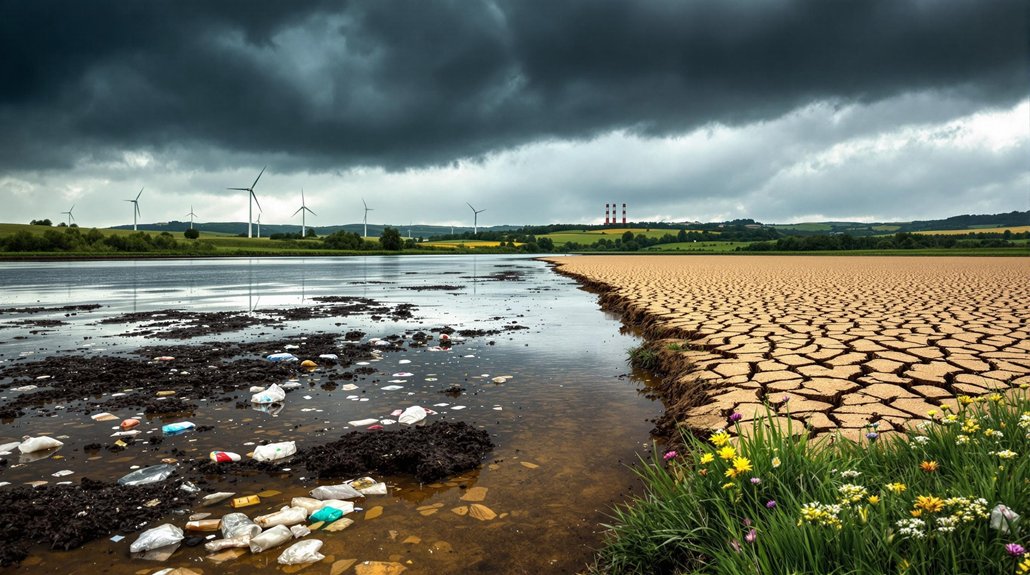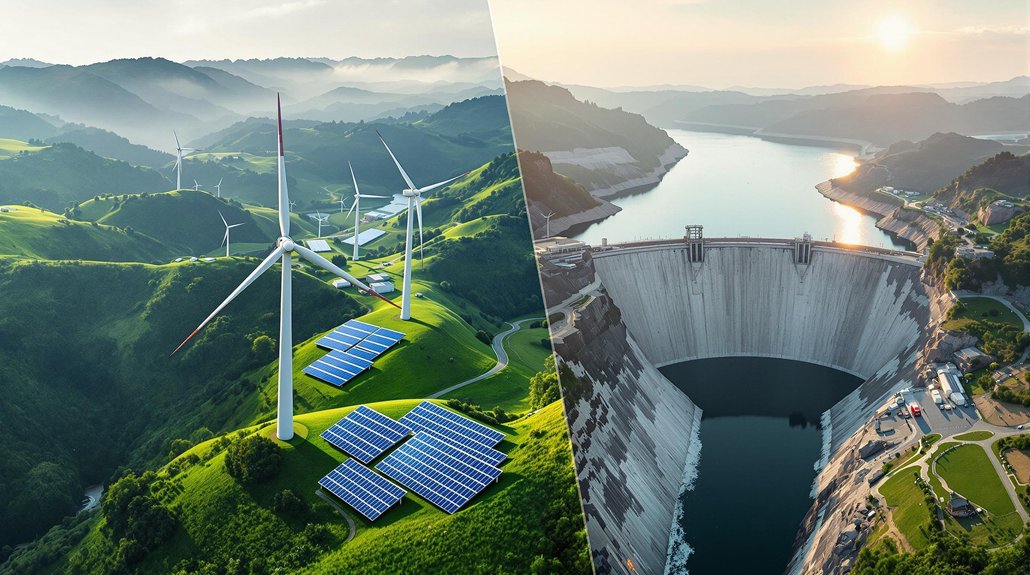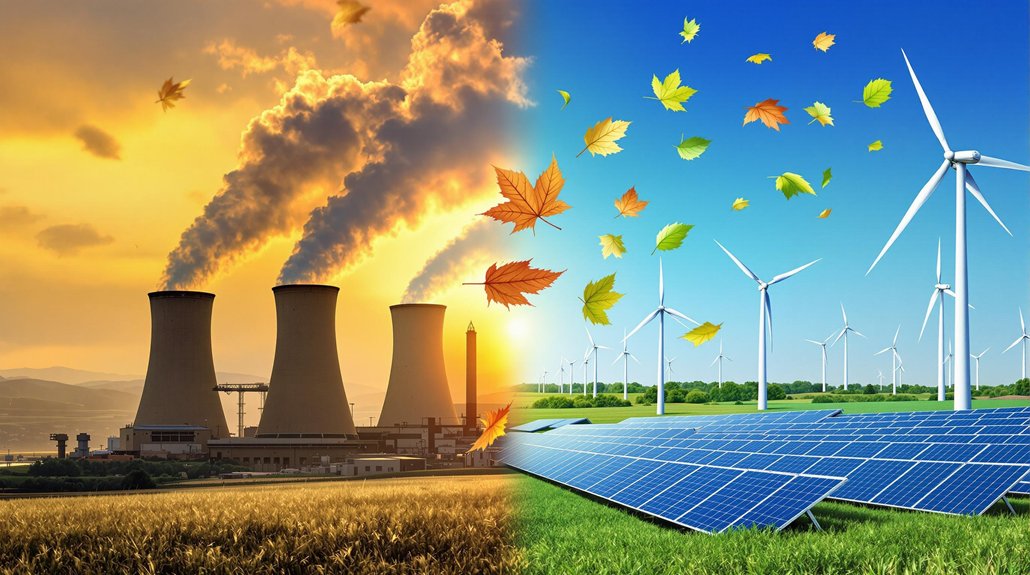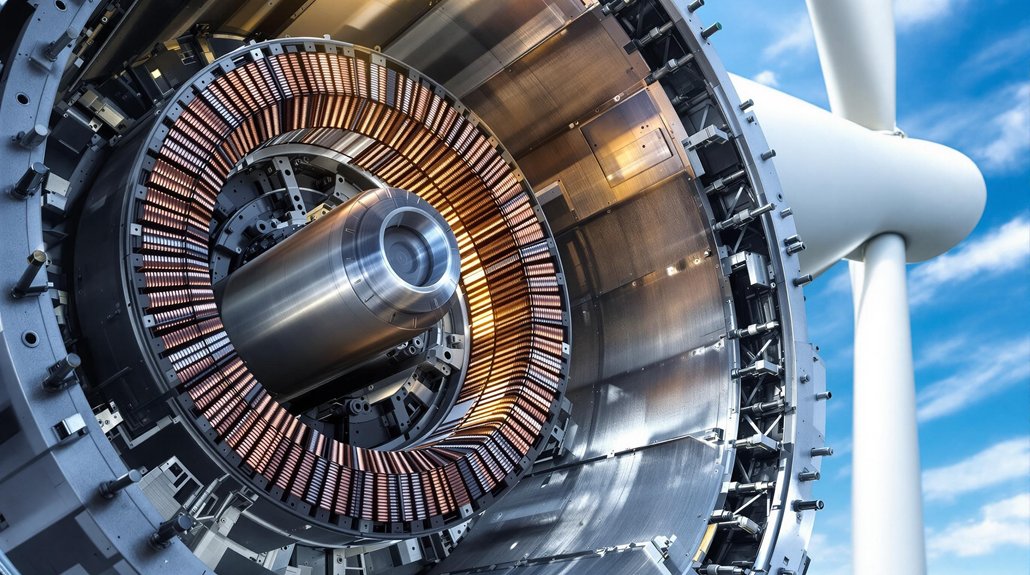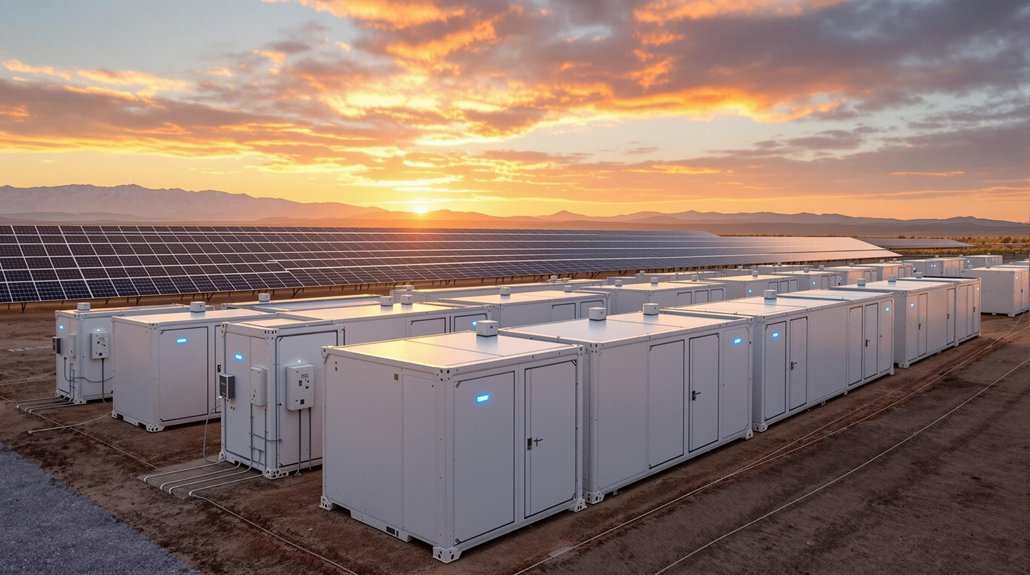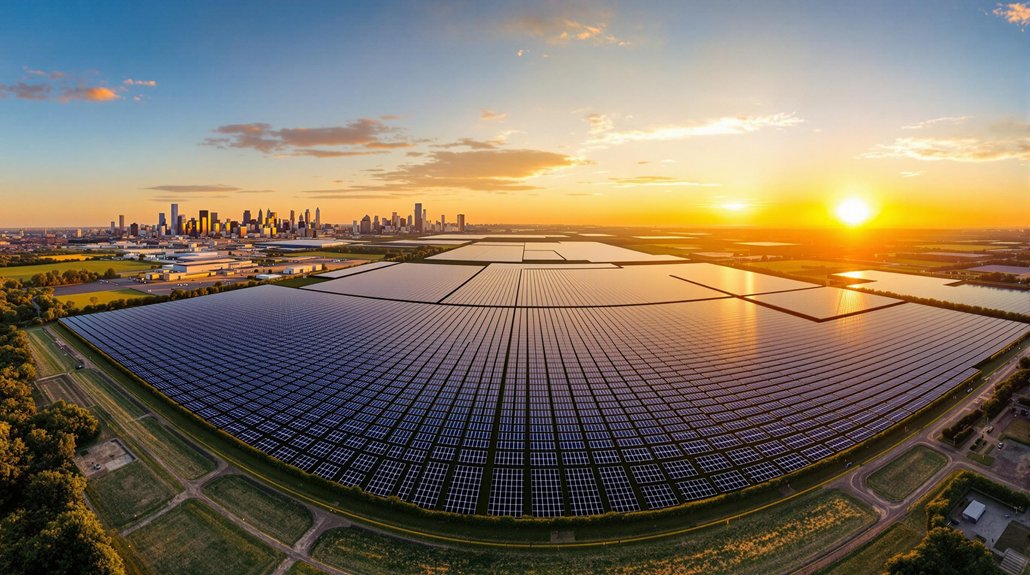The UK faces five critical environmental challenges today. Climate change is causing rising temperatures and extreme weather, costing 1.1% of GDP. Air pollution contributes to 29,000 early deaths yearly. Water infrastructure loses billions of liters daily through leaks. Wildlife decline threatens 15% of species with extinction. Waste management struggles with stagnant recycling rates and diminishing landfill capacity. These interconnected issues demand immediate attention to protect the nation’s future.
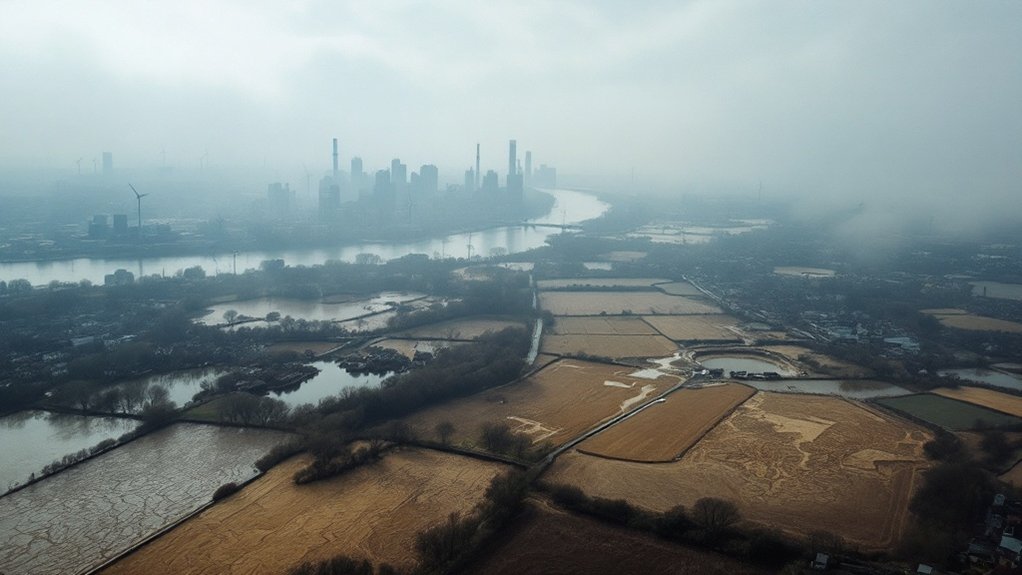
While the United Kingdom faces many pressing issues today, environmental challenges are quickly becoming some of the most serious threats to the nation’s well-being. Climate change is hitting the UK harder than many other countries, with temperatures rising faster than the global average. This warming is leading to more extreme weather like floods and droughts, and it’s already costing the country 1.1% of its GDP. Experts warn this could rise to 3.3% by 2050 if nothing is done.
Air pollution remains a deadly problem, especially in cities. About 2 million Londoners breathe heavily polluted air every day, and across the nation, air pollution is linked to 29,000 early deaths each year. Cars, buses, and trucks are the main culprits in urban areas, with many cities having illegal levels of nitrogen dioxide. The establishment of clean-air zones in major urban centers is expected to intensify throughout 2025 as part of the nationwide effort to combat pollution.
The toxic air crisis silently claims 29,000 British lives annually while millions breathe illegal pollution levels in our cities.
Water issues are growing more serious too. The UK loses about 3 billion liters of water daily through leaky pipes, while the southeast faces increasing risk of water shortages. Farm chemicals and microplastics are finding their way into rivers and drinking water supplies.
The country’s wildlife is in trouble, with 41% of species declining since 1970 and 15% now at risk of vanishing from Great Britain. Both habitat loss and climate change are pushing many animals and plants toward extinction.
Waste management presents another challenge. The UK produces 222.2 million tonnes of waste yearly, but recycling rates have stalled at about 45%. Landfills are expected to reach capacity by 2030, and food waste alone accounts for 10 million tonnes annually. The transition to a sustainable future will require the UK to leave approximately 90% of coal reserves unexploited to meet the Paris Agreement targets.
The soil that grows the nation’s food is eroding at an alarming rate – 2.9 million tonnes of topsoil are lost each year. Meanwhile, the country is working to transform its energy system to reach net-zero emissions by 2050. Currently, renewable sources make up 43% of electricity, but heating and transport remain heavily dependent on fossil fuels. Recent data shows tremendous growth in the nation’s wind power capacity, with a 715% increase in electricity generated from this source between 2009 and the 2020.
Frequently Asked Questions
How Do Climate Policies Impact Uk’s Economy?
Climate policies affect the UK’s economy in several ways.
Short-term costs include a projected £344 billion for decarbonization and temporary GDP contractions when carbon prices rise.
However, long-term benefits could outweigh these costs, potentially adding 2% to GDP through new jobs and industries.
The shift also offers economic security by reducing dependency on fossil fuel imports and creating opportunities in green finance and low-carbon manufacturing.
What Are Businesses Doing to Reduce Environmental Harm?
UK businesses are adopting various strategies to reduce their environmental impact.
They’re implementing energy efficiency measures in offices, switching to renewable power sources, and minimizing waste.
Many companies are greening their supply chains by sourcing sustainable materials and optimizing logistics.
Investment in green technologies like electric vehicles and clean production processes is increasing.
Businesses are also engaging employees and customers in sustainability efforts through education and eco-friendly product offerings.
Which UK Regions Face the Greatest Environmental Risks?
Southeast England faces severe risks from flooding and air pollution due to its high population density.
The Thames Estuary is vulnerable to rising sea levels.
East Anglia’s low-lying coastline struggles with erosion and flooding, while its agricultural land suffers from saltwater intrusion.
Southwest England’s coastal communities are threatened by sea level rise, and Northern England battles flooding in major cities and contamination from its industrial past.
How Can Individuals Contribute to Solving Environmental Challenges?
Individuals can make a difference in solving environmental issues through small daily actions.
People can reduce their carbon footprint by using public transport, switching to renewable energy, and eating less meat. Minimizing waste through recycling, composting, and avoiding single-use plastics helps too.
Water conservation, supporting local produce, and joining community initiatives are other effective ways citizens contribute to environmental solutions without needing government intervention.
What Environmental Technologies Is the UK Developing?
The UK is developing several key environmental technologies.
They’re expanding offshore wind farms with a 50 GW target by 2030, including floating platforms. The government has committed £22 billion to carbon capture projects with North Sea storage sites.
They’re also working on green hydrogen production, aiming for 10 GW by 2030.
Additional innovations include perovskite solar cells, tidal energy systems, and smart grid technologies with AI optimization.
